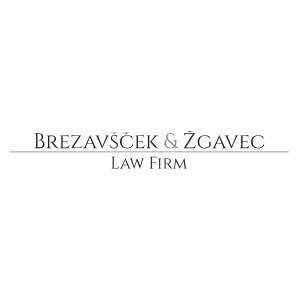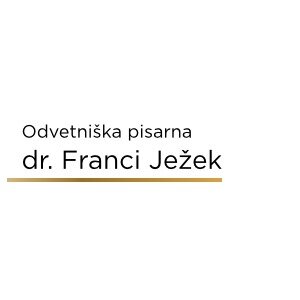Best Water Law Lawyers in Ljubljana
Share your needs with us, get contacted by law firms.
Free. Takes 2 min.
List of the best lawyers in Ljubljana, Slovenia
About Water Law in Ljubljana, Slovenia
Water Law in Ljubljana, Slovenia, governs the management, utilization, conservation, and protection of water resources within the region. Water is considered a valuable public good under Slovenian law, and its ownership, use, and regulation are subject to various national and local legal provisions. These laws are designed to balance the interests of individuals, businesses, and the wider community, ensuring sustainable water use while protecting the environment. Authorities focus on the availability, quality, and allocation of both surface and groundwater, setting the framework for permissions, rights, and obligations related to water usage.
Why You May Need a Lawyer
Legal representation or advice in the field of Water Law can be crucial for several reasons. Typical situations requiring legal assistance include:
- Securing permits for water extraction or discharge
- Resolving disputes over water rights between private landowners or with public authorities
- Compliance with pollution control and environmental protection regulations
- Addressing the liability issues in the event of floods or water contamination
- Navigating the construction and maintenance of water infrastructure such as wells, dams, or wastewater treatment plants
- Understanding the legal implications of new developments or real estate projects near water bodies
- Defending or contesting administrative penalties or orders related to water management
Lawyers with expertise in Water Law can help interpret complex regulations, ensure compliance, defend your interests in negotiations or court, and facilitate interactions with local authorities.
Local Laws Overview
Key aspects of Water Law in Ljubljana and the broader Slovenian territory are governed by the national Water Act, which implements European Union directives such as the Water Framework Directive and the Drinking Water Directive. Significant points include:
- Water Ownership and Use: Water resources are publicly owned. Private usage is possible only with an appropriate permit or concession.
- Permitting: Activities such as water abstraction, discharge, the building of facilities near water bodies, or extraction of materials from rivers require permits from relevant authorities.
- Protection Zones: Special regulations apply to protected areas to prevent polluting drinking water sources and sensitive habitats.
- Fees and Charges: Users may need to pay water usage fees or environmental charges depending on the volume or type of activity.
- Dispute Resolution: Disputes over water rights or regulatory compliance are typically resolved through administrative procedures, though judicial remedies are available.
- Flood and Drought Management: There are regulations in place for preparedness and response to extreme weather events affecting water systems.
Local bylaws in Ljubljana may impose additional requirements for construction activities, land use planning, and pollution prevention near rivers such as the Ljubljanica.
Frequently Asked Questions
What legal body regulates water use in Ljubljana?
Water use is mainly regulated by the Ministry of Natural Resources and Spatial Planning, the Slovenian Water Agency, and local municipal authorities.
Do I need a permit to extract water from a river or well?
Yes, extracting water from rivers, lakes, or underground sources requires a formal permit or concession issued by the relevant authority.
Can I build near a river or stream in Ljubljana?
Construction close to water bodies is strictly regulated. Permits are required, and special building restrictions may apply in flood-prone or protected areas.
How are water rights determined?
Water rights are governed by law and attributed based on permits, concessions, or established customary usage, considering public and environmental interests.
What happens if water is polluted by industrial or agricultural activity?
Polluting water resources attracts administrative penalties and may result in a requirement to restore the environment. Civil or criminal liability may also apply.
Is tap water in Ljubljana safe to drink?
Yes, Ljubljana's tap water meets high safety and quality standards, regularly monitored by public health authorities.
Who is responsible for flood prevention and response?
Flood risk management is shared between the Water Agency, local municipalities, and the civil protection system. Property owners also have some responsibilities for flood mitigation.
Can water disputes be settled outside of court?
Many disputes may be resolved through administrative procedures, negotiation, or mediation, but litigation is available as a last resort.
What are the penalties for illegal water use?
Penalties may include fines, orders to cease unlawful activity, compensation for damages, or, in rare cases, criminal prosecution.
How can I check if my property is in a protected water zone?
Protected zone maps and information are available from municipal offices or the Slovenian Water Agency. Legal professionals can also assist in this process.
Additional Resources
For those seeking further information or assistance regarding Water Law in Ljubljana, useful resources include:
- Ministry of Natural Resources and Spatial Planning - National authority overseeing water regulation and policies.
- Slovenian Water Agency (Direkcija Republike Slovenije za vode) - Responsible for water management, permits, and administration.
- Municipality of Ljubljana - Local authority handling urban planning, local permits, and zoning near water bodies.
- Environmental NGOs (e.g., EKO KROG, DOPPS) - Offer advocacy and support for environmental protection matters.
- Slovenian Bar Association - Provides directories of lawyers specializing in Water Law.
- Public Health Institute - Provides information about water quality and safety standards.
Next Steps
If you need legal assistance concerning Water Law in Ljubljana, follow these steps:
- Identify your issue - Clearly define your legal question or the problem you are facing, such as permit issues, disputes, or regulatory compliance.
- Gather documents - Collect any permits, correspondence, property documents, or official notices related to your case.
- Seek professional advice - Consult a lawyer specialized in Water Law who can interpret regulations and provide tailored advice.
- Contact relevant authorities - If needed, reach out to agencies such as the Slovenian Water Agency or municipal offices for guidance.
- Consider mediation - For disputes, explore out-of-court settlements or mediation before pursuing litigation.
- Stay informed - Follow changes in local and national legislation, especially when planning new developments or business activities.
Engaging with an experienced legal professional early can save time, reduce risks, and help secure your interests in any water-related matter.
Lawzana helps you find the best lawyers and law firms in Ljubljana through a curated and pre-screened list of qualified legal professionals. Our platform offers rankings and detailed profiles of attorneys and law firms, allowing you to compare based on practice areas, including Water Law, experience, and client feedback.
Each profile includes a description of the firm's areas of practice, client reviews, team members and partners, year of establishment, spoken languages, office locations, contact information, social media presence, and any published articles or resources. Most firms on our platform speak English and are experienced in both local and international legal matters.
Get a quote from top-rated law firms in Ljubljana, Slovenia — quickly, securely, and without unnecessary hassle.
Disclaimer:
The information provided on this page is for general informational purposes only and does not constitute legal advice. While we strive to ensure the accuracy and relevance of the content, legal information may change over time, and interpretations of the law can vary. You should always consult with a qualified legal professional for advice specific to your situation.
We disclaim all liability for actions taken or not taken based on the content of this page. If you believe any information is incorrect or outdated, please contact us, and we will review and update it where appropriate.

















